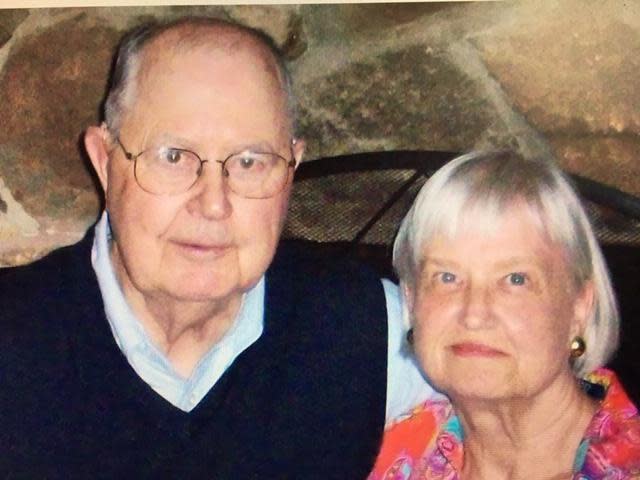Shellys commentary: Never underestimate the power of AWE!
Recently millions of people had the experience of a lifetime. It was breathtaking, out-of-this- world, and mind-blowing. When scientists explained the phenomena, people believed them without demanding certainty. Many traveled over a thousand miles for the experience, even making it a family adventure. Others willingly paid extravagant prices for lodging. Small towns doubled in size. We are told it won’t happen again until 2044. Weatherman Al Roker explained that his picture would be on the side of a Smucker’s jam jar by then! It was to be the “path to totality” – a total eclipse of the sun by the moon. AWE had no price.
Awe is defined in Psychology Today as “a complex emotion that occurs when we experience or witness something wondrous, vast, terrifying, inspiring, amazing, or mind-blowing.” Today, much of our awe is focused on technological or material accomplishments, yet we know that awe contains so much more that is positive, powerful and life-changing.

It can be triggered by any number of things – the vastness of the universe or the density of a forest, a spiritual or religious experience, or being witness to some unimaginable physical feat. Awe has the power to connect us with others, making us feel a part of something much greater than ourselves. It can, however, also leave us feeling powerless and small and insignificant – very simply in awe. Psychology Today explains that quite often awe is mysterious, a “powerful blend of admiration, wonder, respect, and sometimes dread.” It left ancient people feeling vulnerable and afraid, something it can still do today in the face of nature’s wrath.
The subject of awe is a developing area of research. It seems that we human beings need to seek aweinspiring experiences in that they give us a greater sense of social connection. Research is revealing that the experience of awe has the potential to make us kinder and more generous. It is beneficial to our mental and physical health. We are told you can’t “force” awe, but it is suggested that we can create conditions in our lives that make the experience more likely, like watching clouds pass through the sky, the first blooms of spring, a baby’s first steps, or awe-inspiring stories or films.
Researchers are confirming the benefits of experiencing awe in childhood. Again, in Psychology Today, they explain that “children, who experience awe-inspiring moments can reap lasting positive effects on their development, well being, and overall quality of life. Awe can stimulate creativity, enhance emotional well-being, and foster a sense of humility and altruism in children.” The children, who participated in and experienced the “path to totality” will be forever changed and will share their stories with their grandchildren. Many will be inspired to be scientists, researchers, teachers, and astronauts. On April 8th, children were heard to say, “awesome, amazing, cool, etc.” They were part of a shared communal happening. They actually witnessed people putting aside their pettiness and selfishness and meanness, to focus on an event so far away that this unique human experience was reduced to sheer wonder and joy. The social media folks questioned what would happen if we stripped away all the nonessentials and the commonality of that moment became a foundation for our daily interactions.
Yes, we live in difficult times, but researchers find that awe can help us through tough times. Think of pandemic experience. It was the awe-inspiring acts of kindness and courage that lifted us up. We focused less on ourselves, we saw a new level of generosity in people, we felt we weren’t in this by ourselves, and it may have even led to new levels of meaning and purpose. Awe will continue to get us through the tough times. It is no less powerful, but our minds, heads, and hearts have to be open to it.
Those moments on April 8th “unlocked the magic.” Psychology Today explains, “that as children encounter awe-inspiring moments, they learn to approach challenges with an open mind and a willingness to explore life’s vast possibilities. In essence, nurturing a sense of awe in children is akin to planting a seed that will grow into a magnificent tree – a tree that will not only bear the fruits of wisdom, creativity, and empathy but also provide a canopy of comfort and support, allowing them to weather the storms of life. Thus, when we expose our children to awe, we don’t just show them the magic of the world, we give them the key to unlocking the magic within themselves!” Never underestimate the power of AWE!
Walter Shelly retired after 40 years as a professor of political science at West Texas A&M University. Linda Shelly retired after 33 years of teaching sociology at West Texas A&M University and Amarillo College.
This article originally appeared on Amarillo Globe-News: Shellys commentary: Never underestimate the power of AWE!

